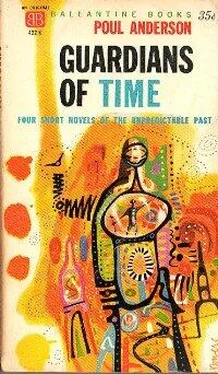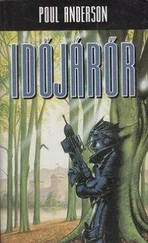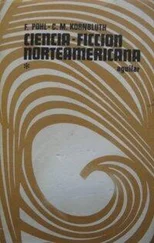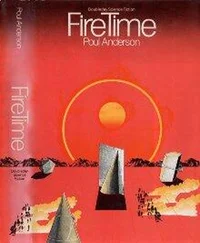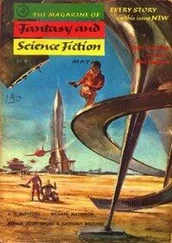Poul Anderson - Guardians of Time
Здесь есть возможность читать онлайн «Poul Anderson - Guardians of Time» весь текст электронной книги совершенно бесплатно (целиком полную версию без сокращений). В некоторых случаях можно слушать аудио, скачать через торрент в формате fb2 и присутствует краткое содержание. Год выпуска: 1962, Издательство: Ballantine, Жанр: Альтернативная история, на английском языке. Описание произведения, (предисловие) а так же отзывы посетителей доступны на портале библиотеки ЛибКат.
- Название:Guardians of Time
- Автор:
- Издательство:Ballantine
- Жанр:
- Год:1962
- ISBN:нет данных
- Рейтинг книги:3 / 5. Голосов: 1
-
Избранное:Добавить в избранное
- Отзывы:
-
Ваша оценка:
- 60
- 1
- 2
- 3
- 4
- 5
Guardians of Time: краткое содержание, описание и аннотация
Предлагаем к чтению аннотацию, описание, краткое содержание или предисловие (зависит от того, что написал сам автор книги «Guardians of Time»). Если вы не нашли необходимую информацию о книге — напишите в комментариях, мы постараемся отыскать её.
“Delenda est” Dec 1955;
“Brave To Be A King” Aug 1959;
“The Only Game in Town” Jan 1960;
“Gibraltar Falls” Oct 1975.
Guardians of Time
Guardians of Time — читать онлайн бесплатно полную книгу (весь текст) целиком
Ниже представлен текст книги, разбитый по страницам. Система сохранения места последней прочитанной страницы, позволяет с удобством читать онлайн бесплатно книгу «Guardians of Time», без необходимости каждый раз заново искать на чём Вы остановились. Поставьте закладку, и сможете в любой момент перейти на страницу, на которой закончили чтение.
Интервал:
Закладка:
Or a little more than that, if he was an Unattached agent of the Time Patrol; if his job with the Engineering Studies Company was only a blind for his wanderings and warrings through all history; if he had seen that history rewritten in minor things—not by God, which would have been endurable, but by mortal and fallible men—for even the Danellians were somewhat less than God; if he was forever haunted by the possibility of a major change, such that he and his entire world would never have existed at all… Everard’s battered, homely face screwed into a grimace. He ran a hand through his stiff brown hair, as if to brush the idea away. Useless to think about. Language and logic broke down in the face of the paradox. Better to relax at such moments as he could.
He picked up the suitcase and went to join Piet Van Sarawak.
Their little two-place antigravity scooter waited on its skids in the garage. You wouldn’t believe, to look at it, that the controls could be set for any place on Earth and any moment of time. But an airplane is wonderful too, or a ship, or a fire.
Aupres de ma blonde
Qu’il fait bon, fait bon, fait bon,
Aupres de ma blonde
Qu’il fait bon dormir!
Van Sarawak sang it aloud, his breath steaming from him in the frosty air as he hopped onto the rear saddle. He’d picked up the song once when accompanying the army of Louis XIV. Everard laughed. “Down, boy!”
“Oh, come, now,” warbled the younger man. “It is a beautiful continuum, a gay and gorgeous cosmos. Hurry up this machine.”
Everard was not so sure; he had seen enough human misery in all the ages. You got case-hardened after a while, but down underneath, when a peasant stared at you with sick brutalized eyes, or a soldier screamed with a pike through him, or a city went up in radioactive flame, something wept. He could understand the fanatics who had tried to change events. It was only that their work was so unlikely to make anything better…
He set the controls for the Engineering Studies warehouse, a good confidential place to emerge. Thereafter they’d go to his apartment, and then the fun could start.
“I trust you’ve said goodbye to all your lady friends here,” Everard remarked.
“Oh, most gallantly, I assure you. Come along there. You’re as slow as molasses on Pluto. For your information, this vehicle does not have to be rowed home.”
Everard shrugged and threw the main switch. The garage blinked out of sight.
For a moment, shock held them unstirring.
2
The scene registered in bits and pieces. They had materialized a few inches above ground level—the scooter was designed never to come out inside a solid object—and since that was unexpected, they hit the pavement with a teeth-rattling bump. They were in some kind of square. Nearby a fountain jetted, its stone basin carved with intertwining vines. Around the plaza, streets led off between squarish buildings six to ten stories high, of brick or concrete, wildly painted and ornamented. There were automobiles, big clumsy-looking things of no recognizable type, and a crowd of people.
“Jumping gods!” Everard glared at the meters. The scooter had landed them in lower Manhattan, 23 October 1960, at 11:30 a.m. and the spatial coordinates of the warehouse. But there was a blustery wind throwing dust and soot in his face, the smell of chimneys, and…
Van Sarawak’s sonic stunner jumped into his fist. The crowd was milling away from them, shouting in some babble they couldn’t understand. It was a mixed lot: tall, fair round-heads, with a great deal of red hair; a number of Amerinds; half-breeds in all combinations. The men wore loose colorful blouses, tartan kilts, a sort of Scotch bonnet, shoes and knee-length stockings. Their hair was long and many favored drooping mustaches. The women had full skirts reaching to the ankles and tresses coiled under hooded cloaks. Both sexes went in for massive bracelets and necklaces.
“What happened?” whispered the Venusian. “Where are we?”
Everard sat rigid. His mind clicked over, whirling through all the eras he had known or read about. Industrial culture—those looked like steam cars, but why the sharp prows and figurehead?—coal-burning—postnuclear Reconstruction? No, they hadn’t worn kilts then, and they had spoken English…
It didn’t fit. There was no such milieu recorded.
“We’re getting out of here!”
His hands were on the controls when the large man jumped him. They went over on the pavement in a rage of fists and feet. Van Sarawak fired and sent someone else down unconscious; then he was seized from behind. The mob piled on top of them both, and things became hazy.
Everard had a confused impression of men in shining coppery breastplates and helmets, who shoved a billy-swinging way through the riot. He was fished out and supported in his grogginess while handcuffs were snapped on his wrists. Then he and Van Sarawak were searched and hustled off to a big enclosed vehicle. The Black Maria is much the same in all times.
He didn’t come back to full consciousness until they were in a damp and chilly cell with an iron-barred door.
“Name of a flame!” The Venusian slumped on a wooden cot and put his face in his hands.
Everard stood at the door, looking out. All he could see was a narrow concrete hall and the cell across it. The map of Ireland stared cheerfully through those bars and called something unintelligible.
“What’s going on?” Van Sarawak’s slim body shuddered.
“I don’t know,” said Everard very slowly. “I just don’t know. That machine was supposed to be foolproof, but maybe we’re bigger fools than they allowed for.”
“There’s no such place as this,” said Van Sarawak desperately. “A dream?” He pinched himself and managed a rueful smile. His lip was cut and swelling, and he had the start of a gorgeous shiner. “Logically, my friend, a pinch is no test of reality, but it has a certain reassuring effect.”
“I wish it didn’t,” said Everard.
He grabbed the bars so hard they rattled. “Could the controls have been askew, in spite of everything? Is there any city, any when on Earth—because I’m damned sure this is Earth, at least—any city, however obscure, which was ever like this?”
“Not to my knowledge.”
Everard hung onto his sanity and rallied all the mental training the Patrol had ever given him. That included total recall; and he had studied history, even the history of ages he had never seen, with a thoroughness that should have earned him several Ph.D.’s.
“No,” he said at last. “Kilted brachycephalic whites, mixed up with Indians and using steam-driven automobiles, haven’t happened.”
“Coordinator Stantel V,” said Van Sarawak faintly. “In the thirty-eighth century. The Great Experimenter—colonies reproducing past societies—”
“Not any like this,” said Everard.
The truth was growing in him, and he would have traded his soul for things to be otherwise. It took all the strength he had to keep from screaming and bashing his brains out against the wall.
“We’ll have to see,” he said in a flat tone.
A policeman (Everard assumed they were in the hands of the law) brought them a meal and tried to talk to them. Van Sarawak said the language sounded Celtic, but he couldn’t make out more than a few words. The meal wasn’t bad.
Toward evening, they were led off to a washroom and got cleaned up under official guns. Everard studied the weapons: eight-shot revolvers and long-barreled rifles. There were gas lights, whose brackets repeated the motif of wreathing vines and snakes. The facilities and firearms, as well as the smell, suggested a technology roughly equivalent to the earlier nineteenth century.
Читать дальшеИнтервал:
Закладка:
Похожие книги на «Guardians of Time»
Представляем Вашему вниманию похожие книги на «Guardians of Time» списком для выбора. Мы отобрали схожую по названию и смыслу литературу в надежде предоставить читателям больше вариантов отыскать новые, интересные, ещё непрочитанные произведения.
Обсуждение, отзывы о книге «Guardians of Time» и просто собственные мнения читателей. Оставьте ваши комментарии, напишите, что Вы думаете о произведении, его смысле или главных героях. Укажите что конкретно понравилось, а что нет, и почему Вы так считаете.
